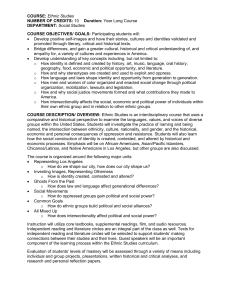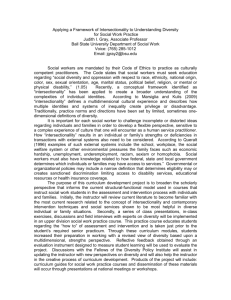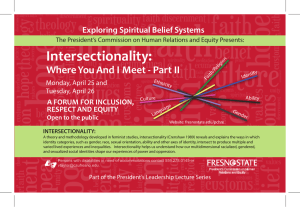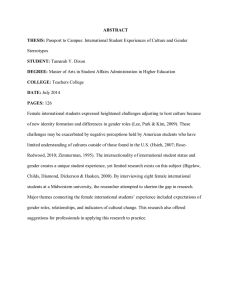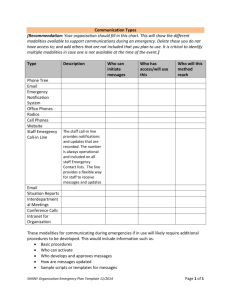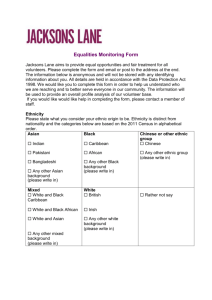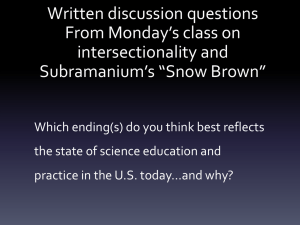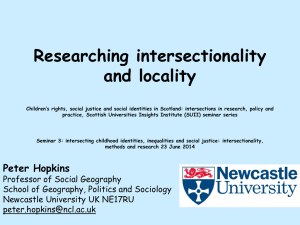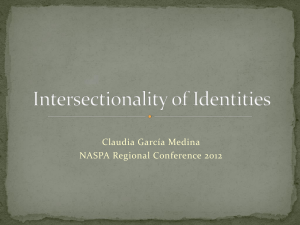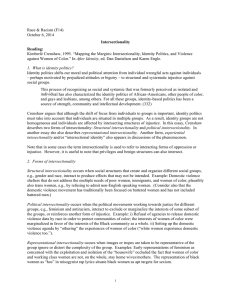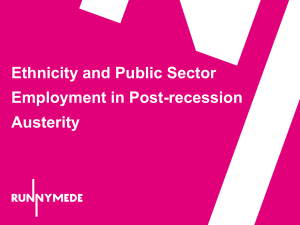The intersectionality of quality and equality education for ethnic
advertisement
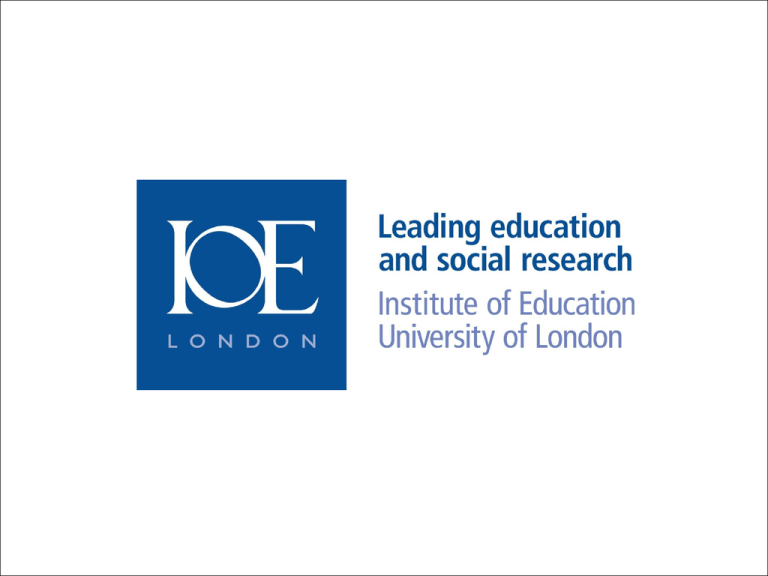
1 Name/Title to go here The intersectionality of quality and equality education for ethnic minorities in Britain: Race, class, gender and the Caribbean dimension Professor Heidi Safia Mirza Intersectionality race, class and gender What is an intersectional analysis? How does race, class and gender impact on our understanding of learning, teaching and systems of assessment ? In the context of intersectionality what factors affect pupil assessment? ….gender is always lived in the modalities of ethnicity and class, and nationality in the modalities of gender and race , and class in the modalities of gender and nationality’ ( Prins 2006:278) 4 g e n d e r Race Race g e n d e r CRENSHAW’S TRAFFIC LIGHT METAPHOR It is the work of the black and postcolonial feminist to ask the simple question what does this mean? – and begin to plot a history’ (GayatriSpivak,1988:297) Race class and genderWhich one? 7 Gender and race- Are all the girls really doing that well? 8 Race and ethnicity makes a difference to Class 9 Ethnic Monitoring and Hierarchies of Difference GCSE 5 A*- C grades 80 70 60 50 40 30 20 10 0 Chinese DfES /SFR Indian White Bangladesh Pakistan African GCSE results, England 2009 Caribbean Theories of ‘black underachievement’ in Britain and Caribbean Cultural Black masculinity Female centeredness Peer pressure ( gangs) Resistance and ‘Acting white’ Parental involvement Bullying and violence 11 Structural Teachers perceptions Institutional racism Transition from primary to secondary Curriculum and pedagogy and books Poor neighbourhoods teaching and resources What assessment tells us about Progression and Transition 12 Achieving Quality Education What makes a difference? Can it be measured? • • • • • 13 Teacher training for inclusion, diversity and equality Supplementary Community schools ( indigenous knowledges) School leadership , ethos & distributive leadership (effective schools) Setting Inclusive targets ( assessment for social justice not league tables) Monitoring achievement of ethnic/gender groups through formative assessment and review For a black person to become educated is therefore to become human. Nothing is more astonishing than to hear a black (wo)man express himself properly, for then he is putting on the white world. Education in this sense is not about the process of learning or teaching or schooling- it is about refutation. Franz Fanon Black Skin White Masks 1952 ( Pluto Press 1986) 14
